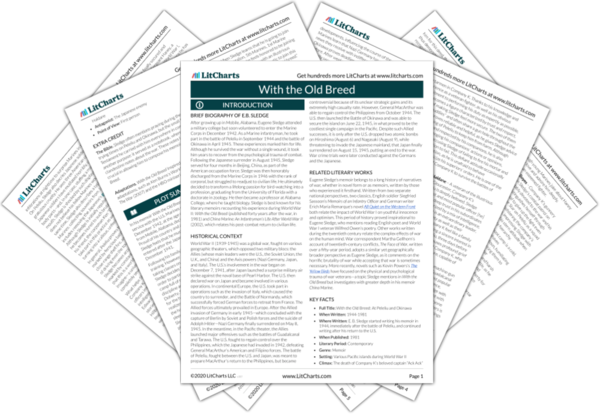AI ToolsNew
Tools to make learning and teaching easier
|
Previous
Part 2, Chapter 9
|
With the Old Breed: Part 2, Chapter 10 Summary & Analysis |
Next
Part 2, Chapter 11
|


Upgrade to unlock the analysis and theme tracking for all of With the Old BreedWith the Old Breed!
Get LitCharts A+